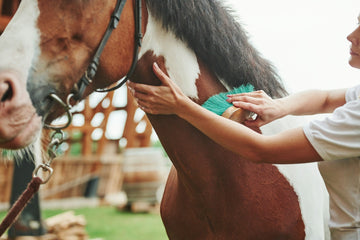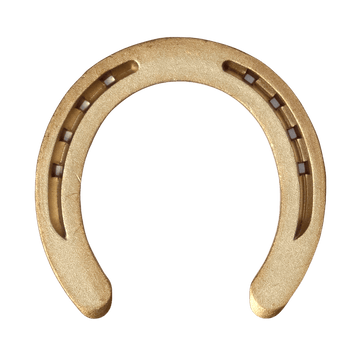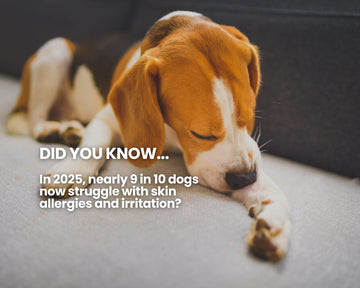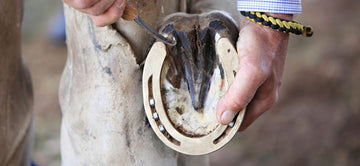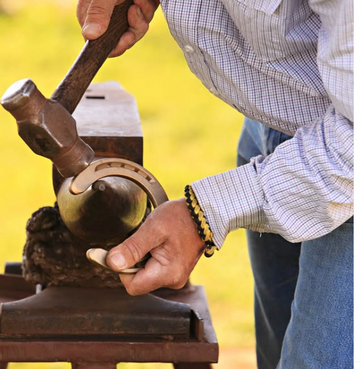Basic horse care is essential for anyone looking to ensure the health, happiness, and longevity of these majestic creatures.
Whether you’re a new horse owner or a seasoned equestrian, understanding the essentials of horse care is vital.
From feeding and grooming to health monitoring and creating a safe environment, this guide provides comprehensive insights into everything you need to know about horse care.
Introduction to Horse Care
Horse ownership is a deeply rewarding experience, but it comes with significant responsibilities. Horses depend on their owners for their physical and emotional well-being. Proper care not only keeps your horse healthy but also strengthens the bond between you and your equine companion.
By committing to a regular care routine and staying informed about equine health, you can ensure your horse thrives in your care.
Basic Needs of Horses
Meeting a horse’s basic needs is the foundation of good care. Horses have specific dietary, shelter, and hydration requirements that must be met consistently.
Nutrition and Feeding: Good Quality Hay
-
Dietary Basics: Horses are grazing animals and require a diet rich in roughage, including high-quality hay and fresh grass. Grain and concentrates may be added based on the horse’s activity level and health needs.
Understanding the horse's digestive system is crucial, as it highlights the importance of frequent, small meals of roughage, and emphasizes the need for grass, high-quality hay, and access to clean water and mineral blocks.
-
Daily Intake: Horses typically consume 1.5% to 2% of their body weight in feed daily. For example, a 1,000-pound horse will eat about 15–20 pounds of hay each day.
-
Clean Water: Fresh, clean water should always be available. Horses drink between 5–10 gallons of water daily, depending on their size and activity level.
-
Supplements: Some horses benefit from supplements to address specific nutritional gaps. Consult with a veterinarian or equine nutritionist before adding supplements.
Water and Hydration
Providing adequate water is essential for a horse’s health and well-being. Horses need access to clean, fresh water at all times, and it’s recommended to change the water frequently to prevent bacterial growth.
A horse’s water intake can vary depending on factors such as climate, age, and level of activity, but a general rule of thumb is to provide at least 10-12 gallons of water per day for an adult horse.
Horse owners should also consider the quality of the water, as some sources may contain high levels of minerals or other substances that can be detrimental to a horse’s health. Regularly testing the water source can help ensure it is safe for consumption.
In addition to providing fresh water, horse owners can also encourage their horses to drink by offering water-rich foods such as fruits and vegetables. This not only helps with hydration but also adds variety to their diet.
Shelter
Horses need protection from extreme weather conditions. A well-ventilated barn or a three-sided shelter in a pasture can provide adequate cover. Ensure the shelter is dry, clean, and safe from hazards.

Equine Health Maintenance
Veterinary Check-Ups
Regular veterinary care is critical to detect potential health issues early. Schedule annual wellness exams, vaccinations, and deworming treatments tailored to your horse's needs.
Dental Care
Horse teeth grow continuously, which can lead to sharp points that make chewing painful. Schedule dental check-ups annually to maintain oral health and prevent discomfort.
Horse's Hooves Care
Proper hoof care is essential for maintaining a horse's hooves, mobility, and overall well-being. Work with a professional farrier to trim hooves every 4–8 weeks and address any hoof issues promptly.
Exercise and Socialization
Exercise horses are active, social animals that require both physical activity and interaction with other horses or humans.
Physical Activity
-
Daily Exercise:Most horses require at least two hours of physical activity daily. This can include riding, lunging, or turnout in a paddock.
-
Turnout Time:Providing your horse with access to a pasture allows them to graze, move freely, and enjoy mental stimulation.
Social Interaction
Horses are herd animals and thrive in the company of others. Socialization prevents loneliness, reduces stress, and minimizes the risk of behavioral problems.
Health Monitoring and Veterinary Care
Monitoring your horse's health daily helps you identify potential issues before they become serious.
Daily Health Checks
Observe your horse’s behavior, appetite, and physical condition. Look for signs of illness or injury, such as swelling, lameness, or changes in demeanor.
Common Health Issues
-
Laminitis:
A painful inflammation of the hoof’s sensitive tissues. Symptoms include lameness and reluctance to move. -
Colic:
A gastrointestinal condition that can be life-threatening. Symptoms include rolling, restlessness, or a lack of appetite. -
Respiratory Issues:
Often caused by poor ventilation or dusty environments. Ensure stalls are clean and well-ventilated.
Preventative Measures in Veterinary Care
Regular veterinary check-ups are crucial for maintaining a horse’s health and preventing illnesses. Horse owners should work with their veterinarian to develop a preventative care plan that includes regular vaccinations, dental care, and parasite control.
Vaccinations can help protect horses against diseases such as rabies, tetanus, and equine influenza, which are common and potentially life-threatening.
Regular dental care is also essential, as it can help prevent dental problems such as tooth decay and gum disease.
Horses’ teeth grow continuously, and without proper care, they can develop sharp points that make chewing painful. Scheduling annual dental check-ups can help maintain oral health and prevent discomfort.
Parasite control measures, such as deworming and regular fecal egg counts, are vital for maintaining a healthy digestive system.
Internal parasites can cause significant health issues if left untreated, so it’s important to follow a deworming schedule recommended by your veterinarian. By taking these preventative measures, horse owners can help ensure their horses remain healthy and happy.

Grooming and Hygiene
Grooming keeps your horse clean, comfortable, and healthy. It’s also a great opportunity to bond with your horse and check for any injuries or abnormalities.
-
Brushing:
Brush your horse daily to remove dirt, debris, and loose hair. Use a curry comb followed by a stiff-bristle brush. -
Hoof Cleaning:
Clean your horse’s hooves daily to prevent infections like thrush and check for lodged debris. -
Bathing:
Bathe your horse occasionally or as needed, especially during warm weather. Use horse-specific shampoos to avoid skin irritation. -
Stall Cleaning:
Remove manure and wet bedding daily to maintain a hygienic living environment.
Creating a Safe Environment
Your horse’s living environment plays a crucial role in their health and safety.
Shelter and Fencing
-
Shelter:
Provide a clean, dry, and comfortable shelter with proper ventilation. -
Fencing:
Use sturdy materials like wood or vinyl for fencing. Avoid barbed wire, which can cause severe injuries.
Hazard Prevention
Inspect the paddock or pasture regularly for hazards such as sharp objects, toxic plants, or uneven terrain. Ensure gates and fences are secure to prevent escapes.
Safety Precautions and Emergency Planning
Being prepared for emergencies ensures you can act quickly to protect your horse.
-
First Aid Kit:
Include essentials like bandages, antiseptic, and a thermometer. -
Emergency Contacts:
Keep the contact information for your veterinarian, farrier, and nearby equine hospitals easily accessible. -
Evacuation Plan:
Have a plan in place for natural disasters, such as wildfires or floods, including transportation arrangements.
Pasture and Turnout Management
Providing adequate pasture and turnout is essential for a horse’s physical and mental health. Horse owners should ensure that their horses have access to high-quality pasture that is free from toxic plants and other hazards.
The ideal pasture should be well-managed, with regular rotation and fertilization to maintain its nutritional value. This helps ensure that the pasture remains a reliable source of good quality hay and fresh grass.
Horse owners should also consider the size and layout of the pasture, as well as the number of horses being turned out, to ensure that each horse has enough space to move around and graze comfortably.
Overcrowding can lead to overgrazing and increased stress among the horses.
In addition to pasture, horse owners should also provide regular turnout in a safe and secure area, such as a paddock or arena, to allow their horses to exercise and stretch their legs.
Turnout time is crucial for a horse’s physical health and mental well-being, as it allows them to engage in natural behaviors and interact with other horses. By managing pasture and turnout effectively, horse owners can help their horses thrive in a healthy and stimulating environment.
Common Mistakes to Avoid
Even experienced horse owners can make mistakes. Here are some common pitfalls to avoid:
-
Neglecting Hoof Care:
Regular hoof cleaning and trimming are essential to prevent lameness and infections. -
Overfeeding or Underfeeding:
Providing the wrong amount or type of food can lead to obesity, malnutrition, or digestive problems. -
Lack of Socialization:
Isolated horses are more likely to develop stress-related behaviors like cribbing or weaving.
Advanced Horse Care Topics
For those looking to deepen their knowledge, consider exploring these advanced topics:
-
Equine Nutrition: Learn about the specific dietary needs of performance horses, senior horses, or those with medical conditions.
-
Behavioral Training: Work with a trainer to address behavioral challenges and improve your horse’s performance.
-
Breeding and Foal Care: If breeding horses, study the care required during pregnancy, foaling, and raising a young horse.
-
Riding Lessons: Taking riding lessons from local stables and equine professionals is crucial for gaining practical experience and understanding horse care, ensuring safety for both the rider and the horse.
Horse Care Best Practices
To ensure your horse’s well-being, follow these best practices:
-
Establish a Routine:
Horses thrive on consistency. Stick to a regular schedule for feeding, grooming, and exercise. -
Stay Educated:
Attend workshops, read equine care books, and consult professionals to stay informed. -
Build a Support Network:
Connect with other horse owners, veterinarians, and trainers for advice and assistance.
Frequently Asked Questions
Are horses easy to take care of?
Horses require time, effort, and knowledge. With proper care and planning, they can be manageable.
How much does it cost to care for a horse annually?
Annual costs vary but typically range from $2,500 to $4,000 for basic care.
What is the most important part of horse care?
Providing a balanced diet, fresh water, and a safe living environment are fundamental.
How to Take Care of a Horse Conclusion
Caring for a horse is a rewarding journey that requires dedication, knowledge, and compassion.
By meeting their basic needs, monitoring their health, and maintaining a clean and safe environment, you can ensure your horse leads a happy and healthy life.
Through consistent care and attention, the bond you develop with your horse will be a source of joy and fulfillment for years to come.

